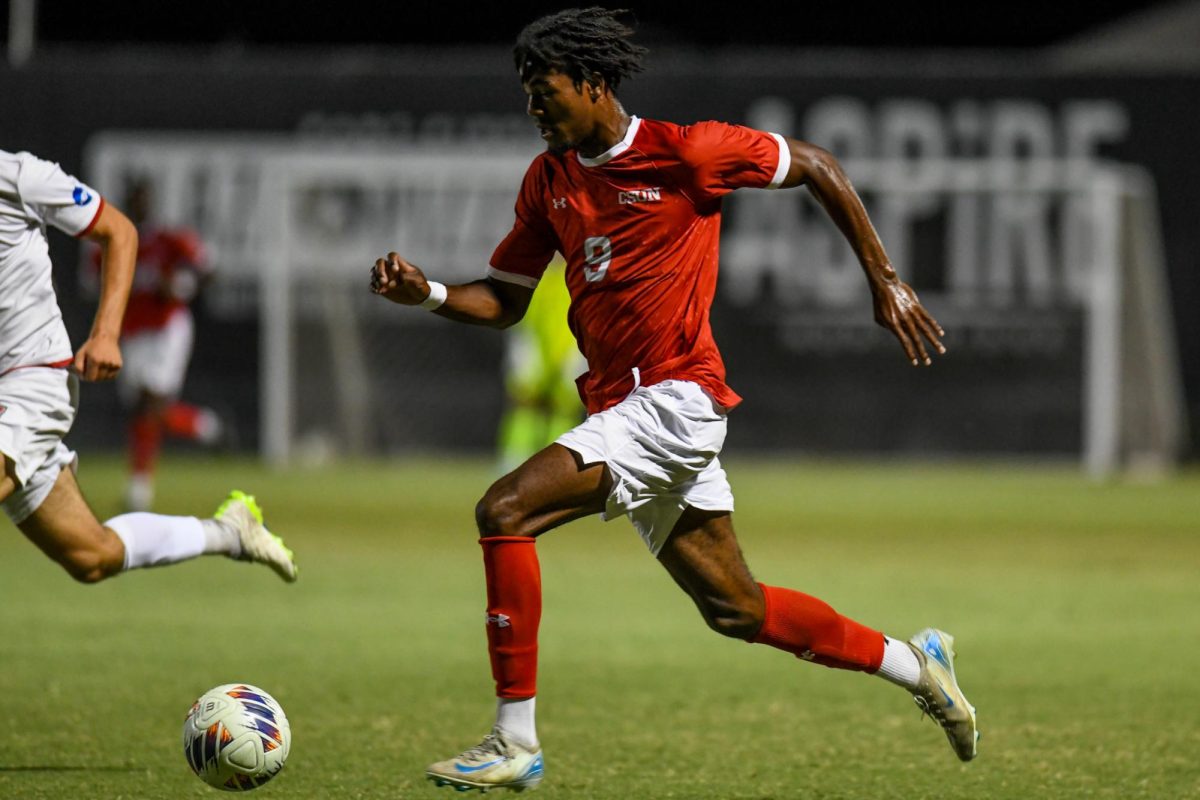
Vinnie McGhee watched from the bench as his new team, Cal State Northridge, was minutes away from pulling the improbable upset over the No. 2 seed, Memphis, in the 2009 NCAA Men’s Basketball Tournament. His Matadors faltered down the stretch, but the game will forever be remembered as one of the most illustrious games in CSUN March Madness history.
Witnessing the near upset reassured McGhee then that he had made the right choice to transfer to Northridge from Sacramento State after his freshman season.
McGhee couldn’t be on the court with his teammates during the 2008-09 season because he was redshirted, but the 5-foot-10 guard knew he still had three years of eligibility to get back to “the dance.”
CSUN failed to make the NCAA Tournament the next two years, making the 2011-12 season, his senior one, the last opportunity for McGhee to reach that goal. However, that final opportunity was taken away from him in May.
Academics (low grades), among other factors, won’t allow the Matadors to even attempt to repeat the 2009 feat as the NCAA decided to ban them from all postseason play for the upcoming season. CSUN has had continuous sub-par marks in the NCAA’s Academic Progress Rates (APR) report, an account which measures eligibility and retention for Division I student-athletes and is an indicator of graduation rates, and will also lose two scholarships.
The Matadors posted an APR score of 871 for the 2009-10 season, well under the NCAA’s required 925. It was a minimal increase from the 870 score the 2008-09 team recorded.
Since the NCAA started using the APR in 2004-05, Northridge has never come close to the 925 it’s needed. The Matadors highest score came in that inaugural year (885), and the lowest was in 2006-07 (860). Then, the NCAA put CSUN on notice of its shortcomings and followed up with yearly penalties of scholarship takeaways and practice-time reductions.
“When I heard about the ban I was like ‘wow’ and I flashed back to Sac State,” McGhee said.
McGhee, one of two seniors on the roster, thought about leaving CSUN, but, in the end, he didn’t want to go through another transfer. “I did want to play in March Madness, but at the end of the day, I’m a Matador and this is my team and my family,” McGhee said. “I (transferred) once and it hurt a lot.”
CSUN head coach Bobby Braswell and his coaching staff spoke with McGhee and senior forward John Hayward-Mayhew first, before addressing the team about the ban, and discussed their options, including transferring.
“I had the (option) to transfer with what went on, but I’ve been here for three years and I saw the team that went to the tournament,” McGhee said. “I’ve been on the team with all the adversity and I just felt like it wouldn’t be in my character to leave the team.
“They (coaches) weren’t sneaky about it and said they would support us if we wanted to transfer. They showed us they cared about us. That really made me feel like I wanted to come back,” he added.
McGhee, who averaged 6.7 points per game and made a team-high 51 3-pointers a year ago, now has new goals for the season.“I’m trying to get a regular season title,” he said.
One of the reasons CSUN has poor graduation rates is that players tend to focus on playing overseas and not on receiving a diploma, CSUN Athletic Director Rick Mazzuto said. That was the case with guard Mark Hill during 2009-10. Hill left school early to turn professional.
McGhee is doing his part academically. He’s only 13 units shy of becoming a CSUN graduate.
Though unofficial until the NCAA releases its next APR scores results, last season’s team had a perfect score of 1,000, Mazzuto said.
“The team is doing better (academically) from when I started,” McGhee said. “The newcomers are buying into it and having some of the best grades on the team.
“We will keep that up. We finished out real strong, one of the top programs in academics. The team that lost to Fullerton (in the first round of the 2010 Big West Tournament) had that stuff (troubles with grades).”
The rest of the team also had a tough time with the ban, but now the goal is to send their senior leader off with a Big West regular-season title.
“I was heartbroken when I found out the news that we weren’t going to compete in postseason,” sophomore guard Aqeel Quinn said. “But we want to finish well for our brother (McGhee) with this being his last year.”
McGhee didn’t really want to leave the team, made up mostly of freshmen and sophomores, without a leader.
“I felt like me staying, I can teach them about how college is going to be like,” McGhee said. “(The sophomores) and all the freshmen are like my little brothers and they look up to me.”





